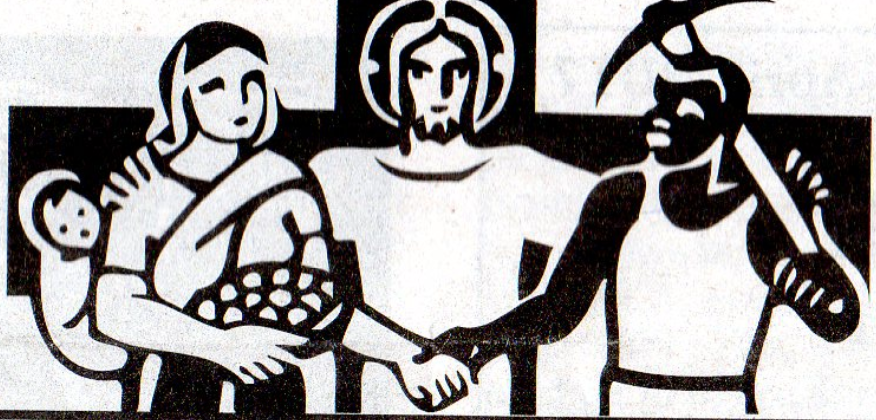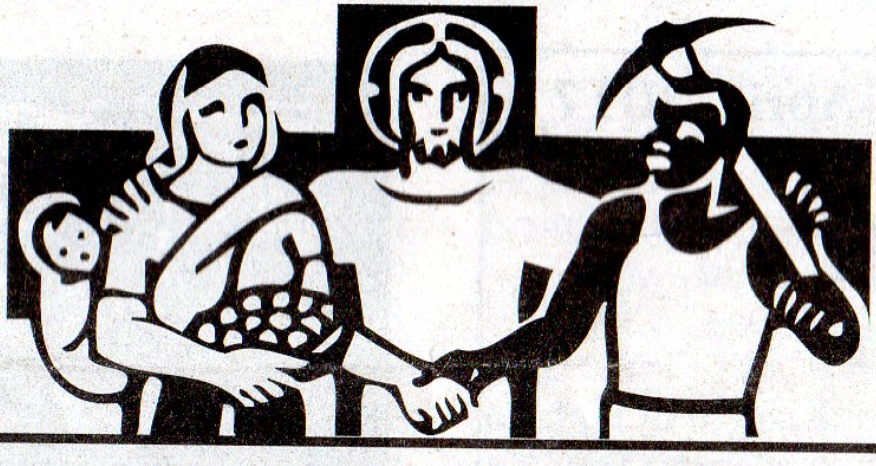

A stint among Catholic Workers, a pathway into joy
“Let joy kill you/ Keep away from the little deaths.” (Carl Sandburg)
I graduated college with a degree in English (with a concentration in creative writing no less) and no clue about the next steps in my life. Big surprise. Relatively quickly I ended up in downtown Phoenix living and working at a place called Andre House, a hospitality center based on the tenets of the Catholic Worker movement and the Congregation of Holy Cross. We served the poor and homeless, welcomed the stranger, and walked that extra mile with the desert’s disenfranchised. All the big-time Jesus stuff.
Lest I give the impression that (A) I’m a saint or (B) I think I’m a saint, rest easy. Neither is the case (though “B” is way more likely). It was worse than all that. The woman with whom I was desperately in love was already part of Andre House and she suggested that since I didn’t know what I was doing I should come out to Arizona too.
“We’re really short-staffed,” she said, “We could use the help.” Which sounded to me like, “I’m super frickin’ in love with you too.”
Back then my understanding of the way in which the world worked was evangelically linear. I almost wrote “ways in which the world worked,” but any estimation of the world via evangelicalism negates the plural: “A,” because of God. Then “B,” also because of God. Finally “C,” a perfect/divine amalgam of “A” and “B” attained without any real hitches in the giddyap.
Any hitches that you speak of, at least. And if noticeable hitches did somehow kink the will of God (and there were always noticeable hitches), you stomp them down the way you boot-heel a cockroach. The evangelical word for this is “prayer,” and prayer was the cudgel with which you could beat God until he submitted to your will. You just had to give him the credit when your dreams came true. I had prayed, that’s for sure. Good ol’ God was finally putting me together with the woman of my dreams. I figured a little due diligence on my part in the faith-without-works-is-dead department was a pretty square deal.
This essay isn’t a history of the Catholic Worker movement, but here it is briefly: It began when Dorothy Day started a hospitality house in New York City around the time of the Great Depression. Bread, clothes, and kindness for “The New Colossus”-types. Pretty soon there were Catholic Worker communities all over the world. The idea was then, and still is, that the Christian life is best lived intentionally: in simplicity, in community with one another, and in community with and service to the poor, homeless, disenfranchised, forgotten, downtrodden, cast aside, laughed at, and spat upon. All the folks who slept on the sidewalk in their shoes last night, the eaters of discarded trash can chicken nuggets, the barefoot alley shamblers with blistered skin from the never-ending sun. The Lord be with you and also with you and also with them as he is with them as he is them.
One bright morning, several months into my time at Andre House, I arrived early at the old warehouse that had been converted into the main hospitality center. There in the alley next to the building was a big pile of shit. Human shit, by the look of it, and this I detected from the wads of used toilet paper beside it. It lay in the path where people queued for services. Somebody had to clean it up. Who else? After some gnashing of teeth I found a trash bag, put on a pair of nitrile gloves, another pair on top of the first, held my breath, and grabbed it.
Now hear this: Shit in hand, I’ve never felt closer to God. Up until my time in Phoenix, all I knew of God was this power that he had to eliminate my culpability, in the heavenly if not the earthly realm, for all the nasty things I’d ever done. Dear-Jesus-save-me-from-my-sins kind of thing. Any other facets of the Divine, if they even existed, were always optional, conceptual, and waaaaay out of reach. “Holiness,” for example. I could aspire to it, but the ideal, de facto holy man, in my faith tradition up to that point, lived in Scottsdale, worked in finance, and had somehow figured out how to quit masturbating. All unnecessary for the attainment of heaven, but certainly much preferred by God over whatever it is that I was, am, and probably will always be.
“You can come into the house,” I can hear God saying to me, even now, “You just can’t go upstairs.”
At Andre House we contended with heroin overdoses, street violence, homeless children, jumpy cops, bloody toilets, feral Rottweilers, and the unrelenting Southwestern sun, trembling to kill. Yet inexplicably, nearly magically, a joy grew in me, the way fog rises—nearly imperceptible at first but undeniable when it comes into its own. Joy not in all the suffering, but somehow not opposed to it. In communion with it. Sourced from beyond it, perhaps, but piped directly through it. Joy, whose critical ingredient is pain. And it’s that pain that quenches and trues and hardens the joy.
It should have been a gigantic surprise. “In the midst of all this, Joy, where the hell did you come from?” Its appearance seemed, instead, the most obvious thing. Regular, and also transcendent. Common, and also breathtaking. Plain, but also winged with beauty. Was this not God’s funny way of consecrating me? Not in the evangelical sense, that epitome of self-centered religion, but “me” in the context of “we,” in the much greater context of the suffering that St. James, Christ’s relative, urged us to consider pure joy? It’s permanent in me now, a gritty ecstasy.
Paul Luikart is the author of the short story collections Animal Heart (Hyperborea Publishing, 2016), Brief Instructions (Ghostbird Press, 2017), Metropolia (Ghostbird Press, 2021) and The Museum of Heartache (Pski’s Porch Publishing, 2021.) He serves as an adjunct professor of fiction writing at Covenant College in Lookout Mountain, Georgia and lives in Chattanooga, Tennessee.
Image: The Catholic Worker
We recently received this comment on Paul’s piece:
Dear Editors:
I’ve been a fan of the Catholic Worker for 25 years.
My least favorite thing about some Worker houses are the “heroin overdoses, street violence and chain smokers” that Paul wrote about in his essay.
But just like other spiritual fellowships, each CW community is different. Or as I like to joke, some are more sane and healthy than others. I still marvel that Dorothy chose to live amidst this kind of chaos. I could not. And that is ok.
Being in, hanging around, dating or befriending a Catholic Worker can indeed be a pathway to joy and gratitude.
Gene Roman
Journalist
NYC